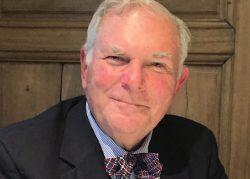A former New York City official who left a big impression on its built environment died Thursday at his home in Brooklyn.
Donald Elliott, who chaired the City Planning Commission almost 50 years ago, was 89, the New York Times reported.
Elliott started out as an urban renewal administrator on the Upper West Side in the 1960s. He aided the winning 1965 mayoral campaign of John Lindsay and oversaw housing programs for the mayor. Elliott was named director of the Department of City Planning in 1966, serving in the role for seven years.
He was responsible for the creation of special zoning districts to help save parts of the city, such as Midtown theaters and the South Street Seaport, from redevelopment. He also orchestrated broader selling of air rights by landmarked properties and helped kill the Lower Manhattan Expressway, which would have plowed through Greenwich Village.
According to the Times, Elliott’s legacy also includes the increased participation of communities in neighborhood planning. Elliott divided the city into community districts to facilitate local input, and also pushed to create housing for low-income tenants in new places, rather than concentrate it.
Read more


Elliott helped negotiate the sale of what became the Gateway National Recreation Area to the federal government after the city couldn’t afford to maintain it.
After leaving the planning department, Elliott was chairman of the New York Urban Coalition and counseled the Trust for Cultural Resources of the City of New York. He also served as a land-use lawyer for the firm Bryant Rabbino.
Former planning commission chairman Victor Marrero told the Times that Elliott’s tenure was “remarkable for the sheer scope of its vision and ambition, admirable for the courage and independence he displayed, and extraordinary for the large imprint his legacy left on the city’s landscape.”
“Donald Elliott was a realist who believed in making a more livable city, and he used inventive legal tactics to try to balance the forces at play in New York,” former Times architecture critic Paul Goldberger told the publication. “New York’s entire approach to planning changed, and he played a key role in almost every innovation.”
[NYT] — Holden Walter-Warner
